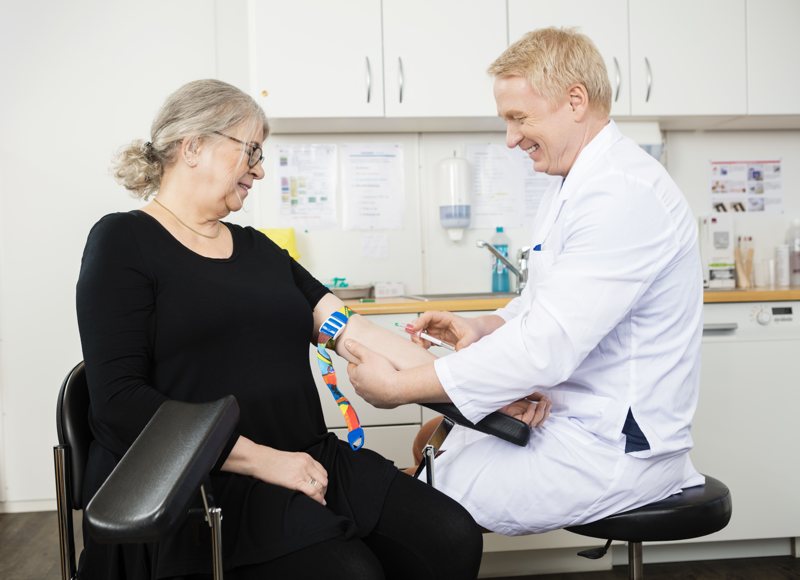Enroll in Northeast Medical Institute - Stamford Campus Phlebotomy Course & CNA Class: Beginning Your Medical Care Career Today
Enroll in Northeast Medical Institute - Stamford Campus Phlebotomy Course & CNA Class: Beginning Your Medical Care Career Today
Blog Article
Crucial Aspects to Consider When Picking the A Lot Of Ideal Medical College Educational Program for You
Selecting the most suitable medical college educational program is a critical choice that can substantially influence your educational journey and future job path. As striving clinical experts, the choice of educational program ought to line up with your individual knowing design and career desires.
Personal Knowing Design

Medical schools that offer varied training approaches and resources can accommodate numerous finding out designs, cultivating a inclusive and dynamic educational environment. Inevitably, recognizing individual learning preferences encourages trainees to make informed choices concerning their medical education, setting a strong foundation for their future professions in healthcare.
Job Goals Placement

Furthermore, straightening job purposes with the medical college curriculum can also boost motivation and involvement throughout the academic journey. They are extra likely to remain devoted and concentrated to their researches when trainees see the straight significance of their coursework to their future profession. For that reason, when choosing a medical college curriculum, it is critical to thoroughly consider just how well it lines up with one's occupation objectives to guarantee an effective and satisfying expert path.
Mentor Techniques
Thinking about the placement of career goals with the chosen clinical institution curriculum, an evaluation of the training methodologies employed ends up being critical in shaping the discovering experience. The performance of a medical institution curriculum greatly counts on the training techniques utilized by the organization. Numerous mentor techniques, such as lectures, small seminar, problem-based discovering, simulation-based training, and hands-on professional experience, can considerably affect how well trainees preserve and understand details.
Simulation-based training enables trainees to practice clinical abilities in a regulated environment before connecting with actual individuals. Hands-on medical experience offers a direct understanding of individual care and medical techniques.
When choosing a medical college educational program, striving students need to think about the teaching techniques employed to guarantee that their discovering choices and staminas line up with the academic technique of the establishment.
Curriculum Adaptability
When examining medical college programs, evaluating the level of curriculum flexibility is necessary for prospective pupils seeking a customized academic experience. Educational program versatility describes the degree to which trainees can customize their understanding courses within the clinical school curriculum. A curriculum that offers adaptability allows pupils to pursue their rate of interests, concentrate on areas where they require extra assistance, and take part in learning experiences that straighten with their profession goals.

Prospective clinical students should consider just how a clinical institution's educational program versatility aligns with their learning preferences, career desires, and personal objectives. By choosing a program Website that supplies the best equilibrium of structure and versatility, students can enhance their instructional experience and prepare themselves for successful jobs in Visit Website medicine.
Medical Direct Exposure Opportunities
Exploring the useful application of clinical expertise, clinical exposure possibilities play a crucial function in forming a thorough medical education. These chances offer trainees with indispensable hands-on experience in real medical care setups, allowing them to bridge the space between concept and practice. When considering clinical school educational program, the quality and amount of professional exposure should be thoroughly examined.
Efficient scientific direct exposure should provide a diverse variety of experiences across different specialties, guaranteeing that trainees are subjected to different medical situations and client demographics. Exposure to outpatient clinics, inpatient wards, surgical cinemas, and emergency divisions can assist students develop an all-around understanding of different aspects of health care shipment. Furthermore, opportunities for community-based care and communications with underserved populaces can promote a deeper gratitude for the social determinants of health.
Furthermore, the visibility of encouraging faculty and mentors during these professional experiences can dramatically improve the knowing process. Professors support and useful feedback can aid trainees show on their clinical experiences, determine areas for renovation, and improve their decision-making abilities and professional skills (Northeast Medical Institute CNA Classes Near me Stamford). Generally, robust professional exposure chances are important for preparing future doctors to Discover More Here supply high quality person care properly
Verdict
In final thought, when selecting a clinical school curriculum, it is important to consider your individual knowing design, positioning with job goals, teaching methods, curriculum versatility, and clinical exposure chances. These factors play a critical role in determining one of the most ideal program for your educational and professional advancement. Make certain to thoroughly assess each aspect to make a notified choice that will best sustain your growth in the medical area.
Comprehending one's individual learning design is crucial when choosing a clinical school curriculum. By identifying one's learning design early on, aspiring clinical trainees can strategically pick a curriculum that provides to their staminas, ultimately improving their learning experience and academic success.
When reviewing clinical institution programs, assessing the extent of curriculum adaptability is necessary for possible students seeking a customized instructional experience. Educational program flexibility refers to the degree to which students can personalize their understanding courses within the clinical college curriculum.In final thought, when selecting a medical school curriculum, it is necessary to consider your personal discovering design, positioning with career objectives, teaching techniques, curriculum adaptability, and scientific exposure possibilities.
Report this page